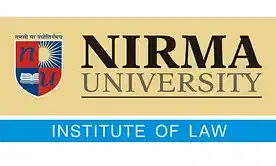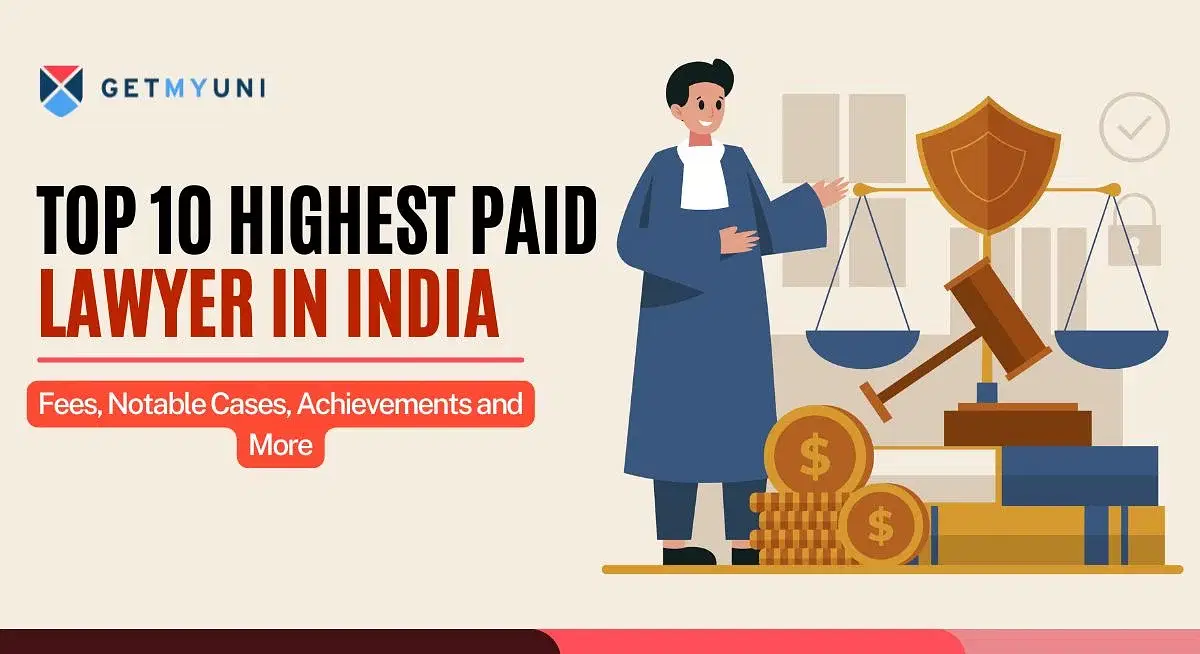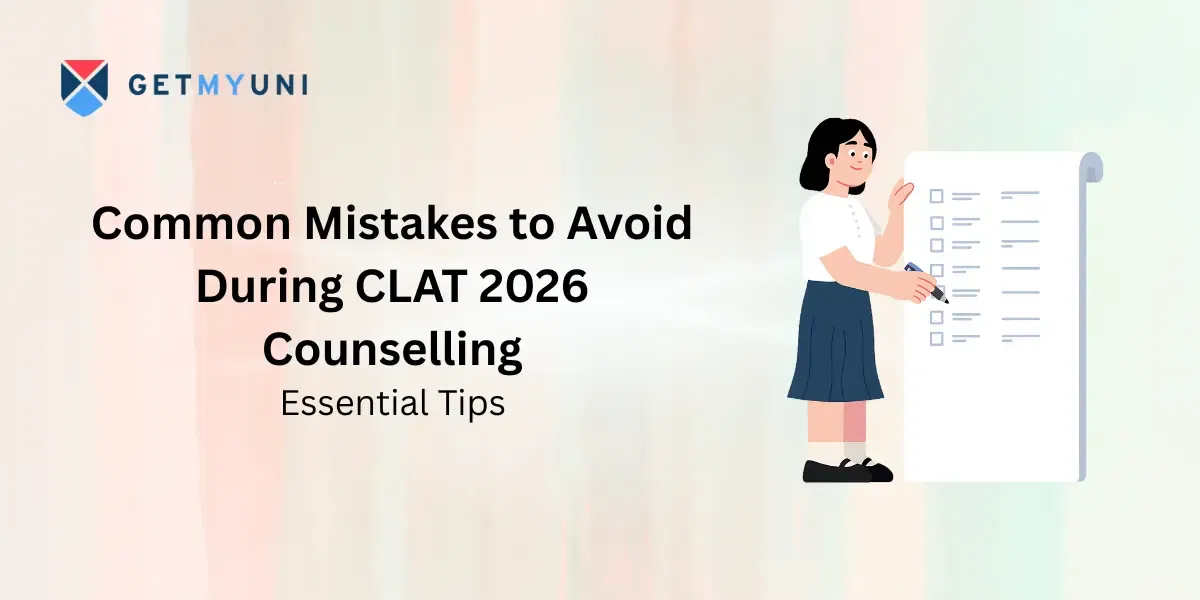Many candidates failed in CLAT and wonder what to do next? It is suggested that students can appear for other entrance exams like AILET, LSAT, and SLAT.
Table of Contents
Failing in CLAT doesn’t close the door to a successful career in law. There are plenty of other exams, law schools, and career paths that can lead to a fulfilling and prosperous future. Whether you choose an alternative law entrance exam, law diploma courses, or dive into fields like legal journalism or corporate law, the opportunities are vast. Remember, every setback is an opportunity to reassess and find the best path forward.
For many law aspirants in India, the Common Law Admission Test (CLAT) is considered the golden ticket to prestigious law schools. But not every student manages to crack the exam, and that’s okay! If you’ve failed in CLAT, it’s important to understand that this is not the end of your journey in law. There are plenty of other avenues to explore and pursue a successful career in law, even if CLAT wasn’t your gateway.
In this article, we will explore alternative options for law aspirants who didn’t clear CLAT, highlighting other law exams, career paths, and opportunities that don’t require the CLAT exam.
What Happens If You Fail in CLAT 2026?
The pressure to succeed in CLAT can be overwhelming. With law being a highly competitive field, the exam often feels like the only way forward. However, failure is not a setback; it’s simply a part of the journey.
Failing CLAT doesn’t mean you can’t become a lawyer or build a successful legal career. It just means that it’s time to reassess your strategy and look into other possibilities. The legal profession is vast, and there are many opportunities beyond the top-tier colleges that require CLAT scores.
Top Alternatives for Law Aspirants After CLAT Failure
If you didn’t clear CLAT or if the result was below expectations, you still have several options to pursue a law degree and make your way into the legal profession.
1. Other Law Entrance Exams
While CLAT is one of the most popular law entrance exams in India, it’s not the only one. There are several other exams you can consider that can help you gain admission to top law colleges:
- AILET (All India Law Entrance Test):
AILET is the entrance exam for admission to the prestigious National Law University, Delhi. It is recognised by top law schools across India and offers a competitive edge in terms of quality education. The AILET exam has a slightly different syllabus and pattern compared to CLAT, so even if you didn’t do well in CLAT, preparing for AILET could be a great second chance. - LSAT (Law School Admission Test):
LSAT is an international law entrance exam accepted by several law universities in India, including Jindal Global Law School, UPES, and others. LSAT assesses skills such as reading comprehension, logical reasoning, and critical thinking. If you didn’t perform well in CLAT, LSAT could be a viable alternative. - DU LLB Entrance Exam:
The University of Delhi offers a highly sought-after law program. The DU LLB entrance exam is one of the most respected law entrance exams and doesn’t require CLAT for admission. If you missed CLAT, applying for the DU LLB program could be a great opportunity for you to pursue a law degree from one of India’s most prestigious universities. - SLAT (Symbiosis Law Admission Test):
Symbiosis International University in Pune offers a 5-year integrated law program, and SLAT is the exam to get into this program. The exam assesses your logical reasoning, legal aptitude, and English proficiency, making it an excellent choice for students who wish to pursue law but didn’t clear CLAT.
These exams can provide access to some of the best law schools in the country without needing CLAT. So, even if you’ve failed in CLAT, don’t be disheartened—explore these alternatives to further your legal career.
Also Read: Law Colleges without Entrance Exam
2. Private Law Colleges and Universities
Many private law schools offer admission through their entrance exams or merit-based selection, and they don’t require CLAT scores. Some of the top private law universities in India include:
- Jindal Global Law School (JGU)
- UPES (University of Petroleum and Energy Studies)
- Shiv Nadar University
- Amity Law School
- MIT-WPU School of Law
These institutions offer a world-class education and provide opportunities to work with renowned law firms, corporations, and organisations. Some of these universities even have tie-ups with international law schools, offering students the chance to study abroad.
3. Diploma in Law or Paralegal Courses
If you want to pursue a career in law but are not interested in attending a traditional law school, you can explore diploma courses or paralegal programs. These shorter-term programs offer legal training and provide practical skills, which can be useful for various legal support roles. Here are some options:
- Diploma in Criminal Law, Civil Law, or Corporate Law
- Paralegal Certification
- Online Law Courses (many recognised platforms like Coursera and edX offer accredited law courses)
These courses help you build practical legal skills, and they don’t require a CLAT score to enrol. After completing these programs, you can work as a legal assistant, paralegal, or in legal research roles.
Also Read: Best Law Specialisations in Demand
Explore Non-CLAT Law Career Paths
Even without a law degree, there are numerous career paths in the legal field you can explore. Here are some options:
1. Corporate Law
Many corporate law firms hire professionals who have strong legal knowledge, even if they haven’t attended the top law schools. A law degree from a private university or even a paralegal certification can help you enter this field. Corporate law offers lucrative job opportunities, and the work involves advising businesses on legal issues such as contracts, mergers, acquisitions, and intellectual property.
2. Legal Journalism
Legal journalism is another growing career option for law graduates and professionals who enjoy writing. Legal journalists write about laws, court cases, legal reforms, and other developments in the legal field. Many law firms, media houses, and legal news platforms look for legal experts with strong research and writing skills.
3. Legal Research & Analysis
Legal research involves analysing legal documents, judgments, and case laws to provide insights that can be useful to lawyers, judges, and firms. Legal analysts and researchers are in demand across various industries, including law firms, think tanks, and corporate legal departments.
4. Government Jobs
You can also consider government jobs, such as joining the Indian judiciary system, where you can work as a legal advisor or pursue civil services exams for law-related roles. Many public sector undertakings (PSUs) also recruit legal professionals for various positions.
Also Read: How To Balance Daily Routine For CLAT 2026 Preparation?
Upgrading Skills for Law Careers Without CLAT
No matter which path you choose, upgrading your skills is crucial for success in any legal profession. Here are some ways to improve your skills and qualifications:
-
Online Legal Courses and Certifications: Platforms like Coursera, Udemy, and LinkedIn Learning offer online law courses, including areas such as constitutional law, corporate law, and legal research. Many of these are free or low-cost and can boost your resume.
-
Internships and Work Experience: The best way to gain practical legal skills is through internships at law firms, courts, or with legal experts. Gaining hands-on experience can help you build a network and improve your chances of getting hired in the legal field.
Also Check: Challenges in CLAT 2026 Exam Preparation and How to Overcome Them?
How to Rebuild Confidence and Prepare for the Next Step?
After CLAT failure, it's normal to feel disappointed or demotivated. However, remember that failure is just a stepping stone to success. Here are some tips to regain confidence and focus on the next steps:
- Set Clear Career Goals: Decide what you want to achieve in the legal field. Whether it’s joining a law firm, becoming a legal consultant, or pursuing further education, having clear goals will keep you motivated.
- Reassess Your Study Strategy: If you plan to retake an exam like AILET or LSAT, reassess your study methods. Take mock tests, join coaching classes, or focus on improving your weaker areas.
- Talk to Mentors: Consult legal professionals, mentors, or teachers for guidance. Their experiences can provide valuable insights and help you understand what works best for you.
Take A Drop Year
One more option for the candidates who failed in CLAT take a gap year. Taking a gap year can turn out to be a smart move to work on the weak areas and further increase the overall score. If you are confident enough to crack the exam, then don’t think twice and go for it! Dropping a year will give you more time to prepare, create organised study plan, target top NLUs, build a strong foundation, and much more.
Also Check: Top 10 Most Effective Stress Management Techniques for Students
































POST YOUR COMMENT